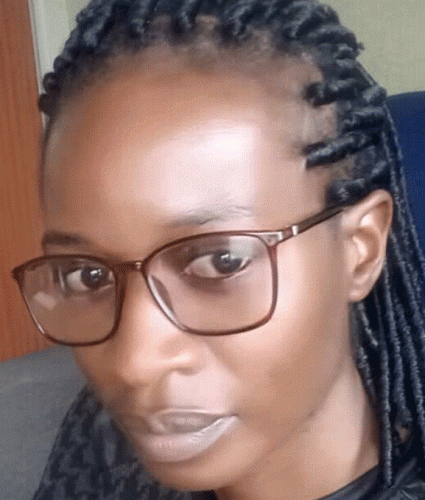
By Michelle Madzudzo
SOME people are of the misconception that cancer is a disease of the elderly, which is not true. Cancer does not discriminate against age, children can get cancer and their lives matter too. As a nation, we need to promote increased appreciation and deeper understanding of issues and challenges impacting childhood cancer and the survivors. There is need to spotlight the need for more equitable and better access to treatment and care for all children with cancer, encouragement to individuals and organisations to stand up and speak out for kids with cancer, survivors of cancer, and their parents, their journey should not be a lonely one.
In every three minutes, somewhere a child is diagnosed with cancer. It is estimated that 300 000 children get cancer each year, 80% live in low- and middle-income countries (LMIC) and have as little as 10-30% chances of cure, compared to 80% or more in high income countries.
What causes childhood cancer?
The real cause of childhood cancer is still a mystery. Many parents wonder what caused their child’s cancer. They may fear that something they did or did not do caused the disease. As far as we know, nothing that you or your child did caused or could have prevented the cancer.
Scientists are working to find the causes of cancer in children. For now, we do not know the exact cause of most childhood cancers. Many contributors are suspected, including a genetic predisposition, exposure to certain toxins or chemicals, prolonged exposure to the sun’s UV rays, and radiation.
Are there any signs and symptoms?
At the present moment, COVID-19 pandemic is the focus of the country and an all-consuming thought in the healthcare system. Because of the widespread pandemic, people may start to fear a COVID-19 diagnosis more than cancer.
- Chamisa under fire over US$120K donation
- Mavhunga puts DeMbare into Chibuku quarterfinals
- Pension funds bet on Cabora Bassa oilfields
- Councils defy govt fire tender directive
Keep Reading
Be reminded that cancer still exists and we need to be in control and more involved. Knowing what to expect can often help put things in perspective and help you and your child make decisions.
- Enlarged head
- Lumps (abnormal lump or lumps on the body)
- Swelling (unusual swelling or abnormal mass)
- Listleness (a high temperature that won’t come down, sudden weight loss, poor appetite)
- Pallor (a pale face especially if accompanied by listleness, high temperature or unexplained ruising)
- Changes in the eye or vision (white spot in the pupil, sudden squinting, bulging eyeball, blindness)
- Unexplained bruising or bleeding (persistent bleeding or development of purple marks indicating bleeding beneath the skin)
- Difficulty balancing
- Headaches (often with early morning vomiting)
- Personality change (change in behaviour or development)
- Aching bones (aching bones, joints or back, or fractures that happen easily)
To improve chances of survival among children suffering from cancer in Zimbabwe, parents and health experts must be alert to the early signs of children’s cancer and ensure early treatment,
Is childhood cancer curable?
Several different ways are used to treat cancer. Each type of cancer may be treated differently, depending on what researchers have found to be the most effective treatment in killing the particular type of cancer cells. In some cases, several types of cancer treatment are given.
In Zimbabwe, three major methods are used to treat childhood cancer either alone or in conjunction with each other, these are:
Surgery
This is the removal of the affected part of the body commonly known as an operation which is performed in a theatre. Taking out the tumour maybe the only treatment needed, but usually chemotherapy or radiation is also used to kill any remaining cancer cells.
Chemotherapy
This is the use of drugs to destroy cancer cells, it is given to either cure cancer or to shrink the growth of the cancer or to increase the effectiveness of surgery by killing possible remaining cells.
It is given as an injection in most cases, or as pills or tablets. It is frequently given in courses with rest between periods to allow normal cells to recover.
Radiotherapy
This is a form of treatment which uses high energy X rays to destroy cancer cells, In Shona it is called kupisa.
The patients are treated with very big machines called linear accelerators, the treatment is given daily from Monday to Friday with breaks during weekends until the treatment is completed depending on the number of days a patient is given.
In Zimbabwe radiotherapy is offered at Parirenyatwa Group of Hospitals in Harare and Mpilo Central Hospital in Bulawayo, and a private cancer facility Oncocare in Newlands Harare. The centres provide treatment on an outpatient basis.
Many parents in Zimbabwe do not know that children get cancer, hence not many children come to Parirenyatwa Hospital, which is the main cancer treatment centre in the country. A diagnosis of cancer in a child is not the end of the world; cancer can be managed and one can get through the cancer trajectory and enjoy more years in this lifetime. But the issue of detecting cancer late adds to mortality. Infant cancer cases are rarely talked about in Zimbabwe which, therefore, makes it hard to document how the disease is affecting children.
If we all come together, we can make a difference and increase the survival rate of children in Zimbabwe. If cancer is detected early, no child should die of cancer. Awareness is key to beating this disease.
I would like to urge communities, schools, and nursing institutions as well as the government to play their part in the fight against childhood cancer.
- Michelle Madzudzo is Talk Cancer Zim founder and radiation therapist











